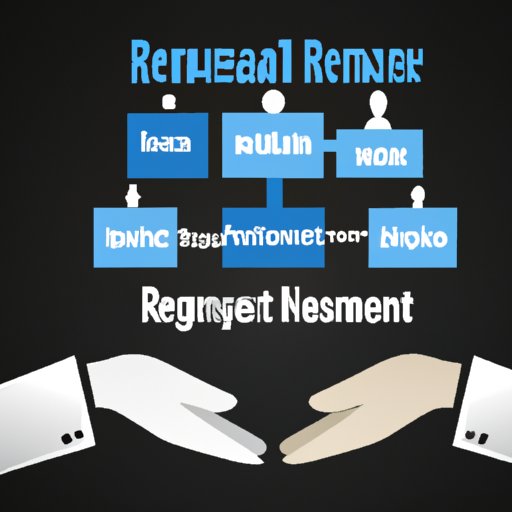Introduction
Human resources management (HRM) is a key component of any organization’s success. It is the process by which organizations manage their employees in order to achieve organizational goals. HRM encompasses a wide range of activities, from recruiting and training to performance management and compensation. The aim of HRM is to ensure that the organization has the right people in the right positions at the right time to maximize its potential.
Examining the Impact of Human Resources Management on Employee Engagement and Retention
Employee engagement and retention are two crucial elements of effective HRM. Employee engagement refers to the level of commitment and enthusiasm that an employee has for their work and their employer. By creating an environment in which employees feel appreciated and valued, an organization can increase employee engagement and job satisfaction. This in turn leads to greater productivity and loyalty, which can have a positive effect on an organization’s bottom line.
Effective HRM practices can also help an organization retain its best employees. By providing competitive salaries and benefits, offering career development opportunities, and recognizing and rewarding outstanding performance, an organization can create an environment where employees feel valued and motivated to stay. This can help reduce costs associated with employee turnover and improve organizational performance.

Investigating the Benefits of Strategic Human Resources Management for Business Success
Strategic HRM is a proactive approach to managing an organization’s human capital. It involves assessing the current and future needs of the organization and developing a plan to meet those needs. Strategic HRM focuses on aligning the organization’s goals with the skills and abilities of its employees. By doing so, it helps an organization become better positioned to take advantage of opportunities and respond to changes in the external environment.
Strategic HRM can have a significant impact on an organization’s performance. It can help increase employee productivity and morale, as well as reduce costs associated with recruitment and training. Additionally, it can help an organization attract and retain talented employees, which can lead to improved customer service and increased profitability.
Conclusion
Human resources management plays an important role in achieving organizational goals. It can have a positive impact on employee engagement and retention, as well as contribute to business success through strategic HRM practices. By understanding the connection between HRM and organizational performance, organizations can ensure they are getting the most out of their human capital and creating an environment in which employees can thrive.
(Note: Is this article not meeting your expectations? Do you have knowledge or insights to share? Unlock new opportunities and expand your reach by joining our authors team. Click Registration to join us and share your expertise with our readers.)

HR management can have a positive effect on employee engagement and company performance. After 30 years of no improvement in employee engagement, as measured by tools like the Gallup 12, its clear the majority of HR has not been up to the task.
If you want great employee engagement, repeat customers and profitable growth, you might look at companies that accomplish this, year after year. Industry leaders like Capital One, Apple and Costco are defining the future. They partner with their employees in serving their customers profitably, an ongoing challenge. Doing so, they have a huge advantage over companies that don’t. Their employees don’t negotiate a better standard of living, including benefits. They earn them, which is far more satisfying and financially rewarding for both employees and the companies. This article provides more background: https://hbr.org/2018/01/more-than-a-paycheck The research on hundreds of companies with Harvard Business School proves this works: https://www.inc.com/bill-fotsch/a-key-strategy-to-double-your-profitable-growth.html